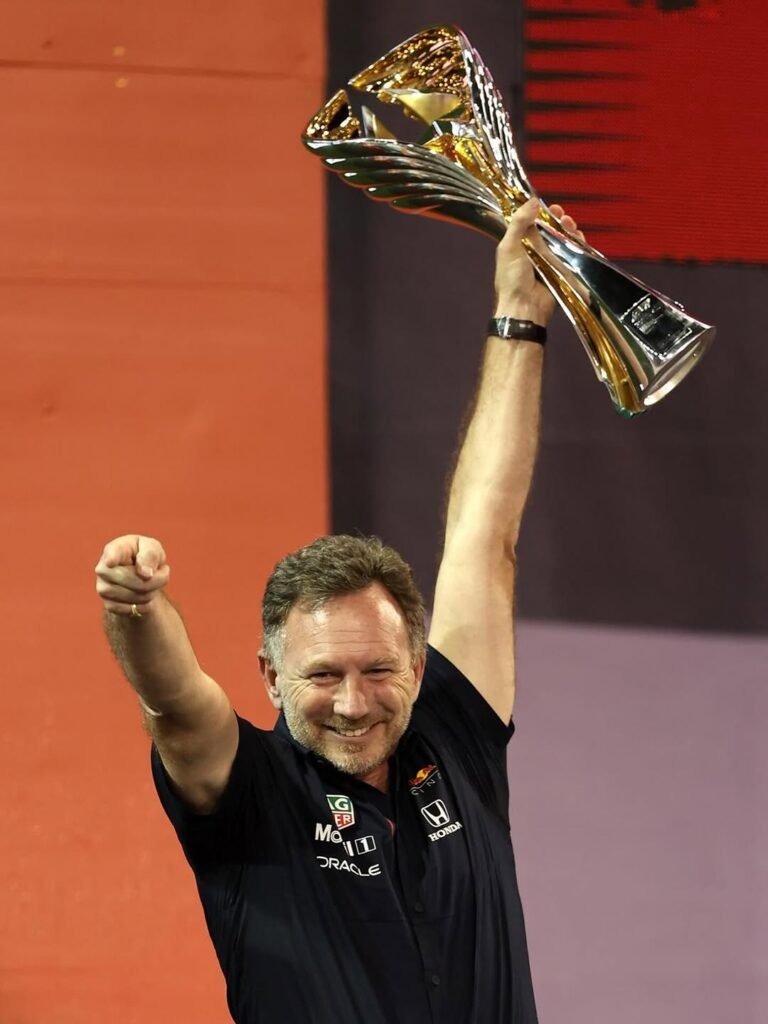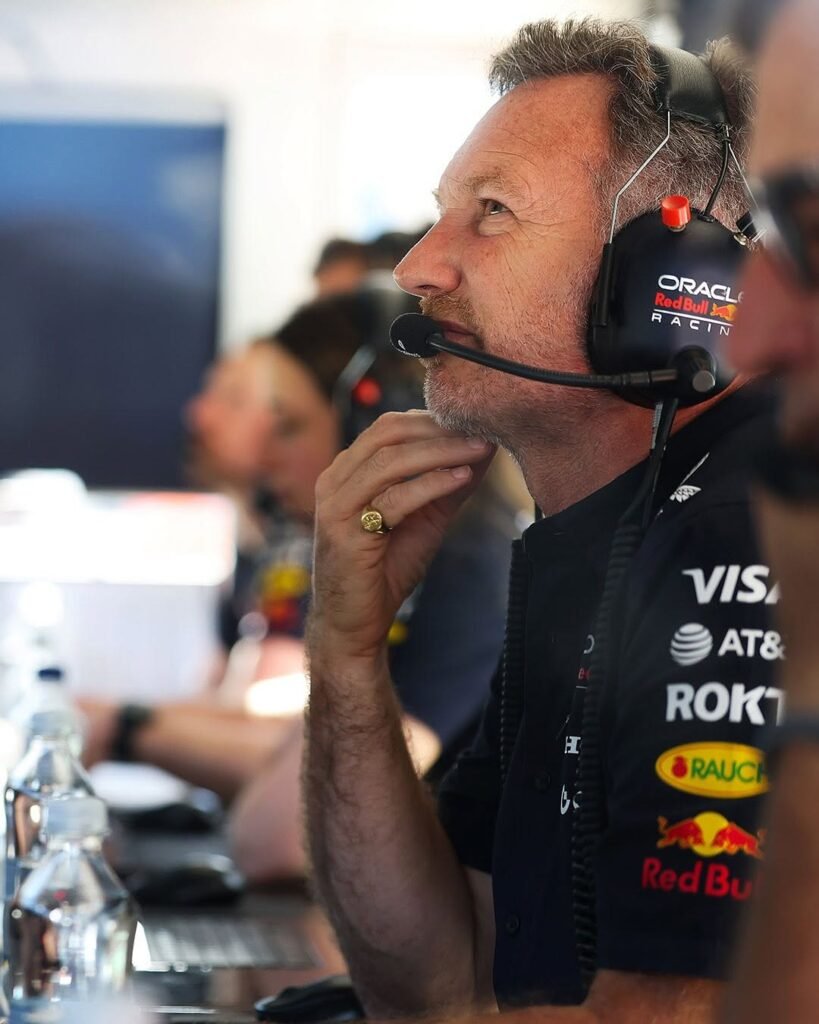Christian Horner has been a defining figure in Formula One for two decades. His recent departure from Red Bull Racing marks the end of one of the sport’s most successful and eventful chapters. As the news trends across the UK, fans and pundits alike are reflecting on his achievements, the circumstances of his exit, and what the future holds for both Horner and Red Bull Racing.
A Legacy Built on Success
Horner took charge of Red Bull Racing in 2005, at just 31 years old, making him the youngest team principal in Formula One at the time. Over the next 20 years, he transformed the Milton Keynes-based outfit from a midfield contender into a dominant force. Under his leadership, Red Bull secured six Constructors’ Championships and eight Drivers’ Championships. The team amassed 124 Grand Prix wins, 107 pole positions, and 287 podium finishes, making Horner the second-most successful team principal in terms of race victories, behind only Ron Dennis.
Red Bull’s first taste of championship glory came in 2010, with Sebastian Vettel clinching the drivers’ title. Vettel went on to win four consecutive titles, establishing Red Bull as a powerhouse. In recent years, Max Verstappen continued this legacy, securing four drivers’ titles under Horner’s stewardship.
The Shock Departure
On 9 July 2025, Red Bull announced that Christian Horner had been relieved of his duties as team principal and CEO, effective immediately. The news sent shockwaves through the paddock and the wider sporting world. Horner’s contract had been set to run until 2030, and he had expressed unwavering commitment to the team only weeks before.
Red Bull’s statement did not specify a reason for his dismissal. Horner himself said he was “shocked” by the decision, describing his time at Red Bull as “the biggest privilege of my life” in an emotional farewell speech to staff at the Milton Keynes headquarters. Laurent Mekies, previously team principal at Racing Bulls, was named as his successor.

Behind the Scenes: Performance and Power Struggles
While the official reason for Horner’s departure remains undisclosed, several factors contributed to the decision. Red Bull’s performance on track had declined sharply in 2025. The team, once dominant, found itself fourth in the Constructors’ Championship, trailing McLaren, Mercedes, and Ferrari. Max Verstappen, the team’s star driver, sat only third in the drivers’ standings.
The issues extended beyond the car’s performance. The departure of key technical figures, most notably Adrian Newey to Aston Martin, weakened the team’s engineering strength. Red Bull’s second car struggled, with new drivers unable to match Verstappen’s pace. This lack of depth in the driver line-up raised concerns about the team’s ability to challenge for championships.
Internally, Red Bull faced a period of turbulence. Reports of power struggles within the organisation and divisions between senior staff members created an unstable environment. The British media noted that results were slipping, key personnel had left, and reputational risks remained unresolved. The future of Max Verstappen, the team’s prized asset, also hung in the balance, with speculation about whether he would stay or seek a move elsewhere.
The Scandal That Shadowed His Final Year
In early 2024, Horner faced allegations of inappropriate behaviour towards a female colleague. Red Bull launched an independent investigation, and Horner was cleared of wrongdoing. However, the episode cast a long shadow over the team, deepening divisions and raising questions about leadership. The case remains subject to legal proceedings, with a labour judge set to hear it in 2026. Reporting restrictions are currently in place in the UK.
Despite being cleared, the scandal contributed to a sense of instability. It also strained relationships within the team, most notably with Jos Verstappen, Max’s father. The fallout from this period lingered, even as Red Bull tried to focus on racing.
Reaction from the Paddock and Beyond
The reaction to Horner’s exit has been one of surprise and reflection. Max Verstappen, who owes much of his success to Horner’s faith and guidance, posted a heartfelt message thanking him for their shared achievements. He highlighted the “incredible successes” they enjoyed together, from his first race win to four world championships.
Martin Brundle, the respected Sky Sports commentator, suggested that Horner’s departure might actually increase the chances of Verstappen staying with Red Bull. He noted that the move was not entirely unexpected, given the team’s recent struggles, but acknowledged that Horner’s absence would be felt throughout the paddock.
What Next for Red Bull and Horner?
Laurent Mekies now faces the daunting task of steering Red Bull back to the front of the grid. The team will need to address its technical and operational weaknesses while keeping Verstappen motivated and committed. The debut of Red Bull’s own engine partnership with Ford in 2026 adds another layer of complexity.
For Honor, the future is uncertain. His achievements in Formula One are undeniable, and his experience will be in demand. Whether he returns to the sport in another capacity or takes time away remains to be seen. In his farewell statement, Horner expressed pride in what the team had achieved and gratitude to everyone who contributed to Red Bull’s journey.
Conclusion
Christian Horner’s departure marks the end of an era for Red Bull Racing and Formula One. His leadership brought unprecedented success, but the challenges of recent years proved insurmountable. As the dust settles, the sport will watch closely to see how Red Bull responds and where Horner’s next chapter begins. For now, his legacy as one of Formula One’s most influential figures is secure, and his story continues to captivate fans across the UK and beyond.
To read more click here

